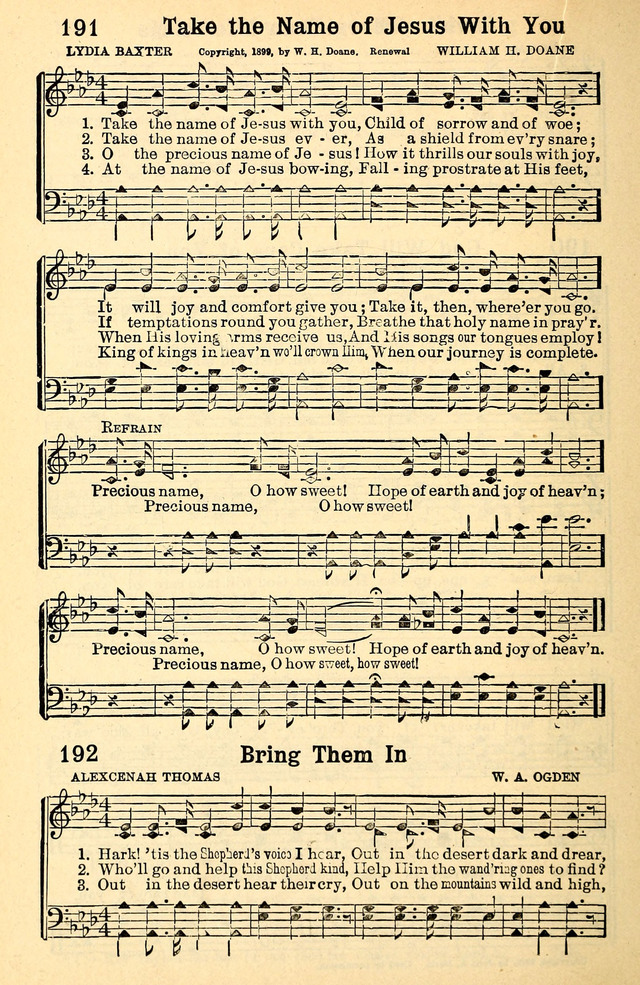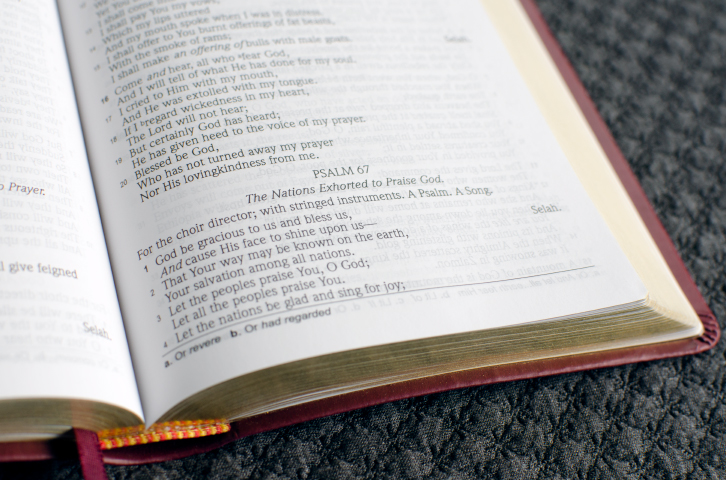Blog
Worship
Singing Hymns as Written
Friday, June 07, 2019

A couple months back, a friend of mine Facebook-messaged me about an issue that every musically inclined Christian is aware of—the times when your congregation isn’t singing a hymn the way it’s written. He wanted to know what I thought about insisting that a hymn be sung “correctly”. Is it worth making a big deal out of?
I think there are two Scriptural principles we need to consider here. The first is our responsibility to glorify God together, as per Romans 15:5-6. The second is our responsibility to do so in a decent, orderly fashion, according to 1 Corinthians 14:40. Whatever best allows Christians to sing together harmoniously while focusing on music, not mechanics, is what we should do.
I think these principles will be applied differently depending on whether a given sacred song is familiar or unfamiliar. When a congregation is learning an unfamiliar hymn, working on singing it as written is important. Otherwise, when those who learned the hymn correctly elsewhere visit our assemblies or join our congregation, the different notions of how a hymn should be sung will create distraction.
Of course, there is a limit to this. Many unfamiliar hymns, particularly praise songs written in the past few decades, will have rhythms that are well-nigh impossible to sight-read. If you’re one of those brethren who can master the rhythm of a line filled with dotted eighth notes, sixteenth notes, and ties and slurs of every description, I salute you! I’m not, and most other Christians aren’t either.
In such cases, I simply advise the sight-reading group to sing it until some consensus idea of the rhythm emerges, and then adopt that. No, you won’t be singing it as written, but neither is any other congregation on the planet singing it as written. There’s no point in trying to attain to a standard nobody reaches.
When it comes to familiar hymns that the congregation sings together but incorrectly, I think song leaders should leave well enough alone. Generally, errors in familiar hymns exist not merely within congregations, but brotherhood-wide. I’ve heard “Follow Me” sung wrong from Texas to Illinois. If everybody who is likely to be in the assembly will be on the same (wrong) page, there will be no problems.
Paradoxically, efforts to sing the hymn correctly will lead to greater distraction and lessened worship. Back when I was growing up, I had an uncle who led singing, and he was determined that the church should sing “Follow Me” as it is written (“I work so hard for Je-e-sus,” and eighth notes on “mortal” in “mortal man”). Before he led the hymn, he would discuss the correct rhythm at great length. Then, he would lead it accordingly.
Didn’t help. Quite the opposite, actually! Half the congregation would sing it as he led it, but the other half would sing it the way they were used to singing it, and then everybody would kind of stop and look around at each other. It wasn’t effective at creating order, but it did a wonderful job of getting everybody focused on notes, not God.
Besides, even if such a song leader is so determined that he forces the congregation to sing the melody of “Take the Name of Jesus With You” correctly (we don’t, unless we’re using a hymnal that changed the melody to match what we sing), what does that profit? The congregation is no more united in being right than it was in being wrong, and the correct version will confuse visitors.
Basically, we should always ask what the goal is. It’s glorifying God together, not singing a piece of music together as well as possible. As long as the first is accomplished, the second isn’t terribly important.
We Should Sing More Psalms
Thursday, February 07, 2019

Recently, I spent a weekend down in Texas working on a project called Timeless. It is a modern-day psalter—an adaptation of all 150 psalms into lyrical and musical forms suitable for use in a-cappella congregational worship. Though I was happy to help, Timeless certainly isn’t my brainchild. Indeed, it had been pursuing this goal for a dozen years before I ever encountered it.
However, the more I think about it, the better I like the idea of singing more psalms. Anybody who pays attention to my writing on worship knows that there are two main lyrical issues that concern me: better Biblical content and greater emotional range. Singing more of Psalms, and especially singing paraphrases that are representative of the content of Psalms, addresses both of those concerns.
Now, it’s true that we have some psalm content in our repertoire already. Nearly every Christian knows the likes of “Hallelujah! Praise Jehovah!” and “The Lord’s My Shepherd”. However, those upbeat hymns of praise and assurance give us a distorted picture of what the Psalms are like. Most of the 150 are not upbeat and happy. To the contrary, most psalms are laments, filled with sorrow and the struggle to find God in difficult times.
Even our song texts that come from psalms of lamentation often manage to miss the point. Take, for instance, the praise song “Shield About Me”. We sing it frequently at Jackson Heights, and I like it, though the high-flying tenor line is kind of a strain for my baritone voice. The lyrics are quoted from Psalm 3:3.
That’s fine, as far as it goes. I’m all about praising God as my shield, my glory, and the lifter of my head. However, Psalm 3:3 isn’t its own proverb. It’s in the context of Psalm 3:1-2, which reads, “O Lord, how many are my foes! Many are rising against me; many are saying of my soul, ‘There is no salvation for him in God.’”
We would never glean it from “Shield About Me”, but Psalm 3 is another one of those psalms of lamentation. The ascription tells us that David wrote it when he was on the run from Absalom. These are the words of a man whose own son is trying to kill him! The idea of God as our shield and glory and head-lifter is powerful on its own, but when it is contrasted with human faithlessness and evil, it becomes sublime. Even if our loved ones betray us, God is still on our side!
We need to be singing things like that, though they undeniably make many Christians uncomfortable. You know what, though? That unpleasant emotion that makes you uncomfortable may be exactly the emotion that a brother or sister in Christ is feeling and desperately, desperately needs to sing about. Don’t think a psalm about betrayal by a family member could be relevant? Talk to a Christian whose spouse has cheated on them.
We live in a culture that insists on authenticity, but too often our song worship is inauthentic. We sing as though every problem a Christian has can be solved with a pasted-on smile and a snappy two-pager. Is it any wonder that so many Christians seem emotionally detached from our singing? Maybe, just maybe, it would help if we invited them to sing what they were truly feeling. Maybe it would help if we invited them to sing from the Psalms.


